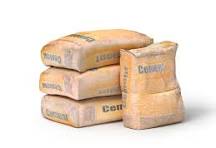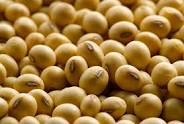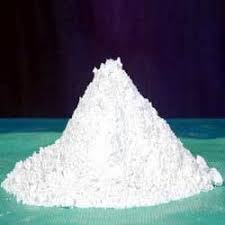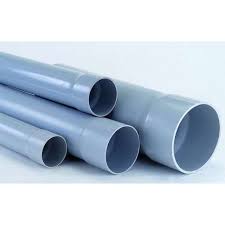Cement Manufacturing in Nigeria; The Feasibility Report.

Cement is a cornerstone of construction, vital for infrastructure development and housing. Nigeria, with its expanding economy and population, has a robust cement industry. This article explores cement production in Nigeria, examining raw materials, the manufacturing process, market dynamics, challenges, and emerging trends.
Cement manufacturing in Nigeria relies on key raw materials, many found domestically. Limestone, the primary ingredient providing calcium carbonate, is abundant in states like Ogun, Kogi, Benue, Cross River, and Sokoto, which also possesses significant gypsum deposits. Clay, providing silica, alumina, and iron oxide, and sometimes iron ore itself, complete the raw material base.
The cement production process involves several stages. Quarrying extracts the raw materials, which are then crushed and ground into a fine powder. This powder is blended into a “raw mix” and fed into a rotary kiln, heated to extreme temperatures to produce “clinker.” The clinker is then cooled and ground with gypsum to create the final cement powder, which is then packaged for distribution.
Cement finds diverse applications in construction, most notably in concrete for foundations, walls, and floors. It’s also used in mortar for bricklaying, plaster for wall finishes, and in road construction for soil stabilization and concrete pavements. Other uses include precast concrete products and tiles.
The global cement market size reached US$ 385.8 Billion in 2023. Looking forward, IMARC Group expects the market to reach US$ 629.9 Billion by 2032, exhibiting a growth rate (CAGR) of five point four percent (5.4%) during 2024-2032.
The global cement market is large and growing, driven by urbanization and infrastructure development, especially in developing economies. Countries with high construction demand but limited domestic production are key importers. Nigeria’s cement market is substantial, driven by its population and infrastructure needs, and dominated by major producers like Dangote Cement, Lafarge Africa Plc, and BUA Cement Plc, who have invested heavily in local production.
While many countries produce cement, some rely on imports to meet demand. These importing countries are often experiencing rapid infrastructure growth or have limited domestic production capacity.
Cement production in Nigeria faces several challenges. The energy-intensive manufacturing process is susceptible to fluctuating energy prices. Inadequate infrastructure, such as power supply and transportation, increases costs and creates logistical hurdles. Environmental concerns surrounding greenhouse gas emissions push the industry towards more sustainable practices. Finally, the competitive market necessitates efficiency and cost-competitiveness.
Several trends are shaping the global and Nigerian cement industries. There’s a growing focus on sustainable production through alternative fuels, improved energy efficiency, and low-carbon cements. The use of supplementary cementitious materials (SCMs) like fly ash and slag, as partial clinker replacements, is increasing to reduce the environmental footprint. Technological advancements are improving efficiency and product quality. Finally, there’s a rising demand for specialized cements tailored for specific applications.
The production capacity of the proposed plant is twelve thousand (12,000) tons per day capacity with a one hundred (100) MGW coal power plant.
In conclusion, cement production in Nigeria is a vital sector crucial for national economic development. While challenges related to energy, infrastructure, and environmental impact persist, the industry is adapting through new technologies and sustainable practices.
The continued growth of Nigeria’s construction sector ensures sustained cement demand, making it a key industry for the nation’s future, with a growing emphasis on sustainable production for long-term viability.
Table of Contents
EXECUTIVE SUMMARY 1.0 Business Overview 1.1 Description of the Business 1.2 Core Values, Vision and Mission Statement 1.3 Value Proposition 1.4 Obtaining a Mining Permit in Nigeria and Associated fees 1.5 Occurrence and Distribution of the minerals in Bauchi state, Nigeria 1.6 Critical Success Factor of the Business 1.7 Current Status of Business 1.8 Description of the Business Industry 1.9 Contribution to Local and National Economy 2. Marketing Plan 2.1 Description of the Product 2.2 Product Packaging and Delivery 2.3 The Opportunity 2.4 Pricing Strategy 2.5 Target Market 2.6 Distribution and Delivery Strategy 2.7 Promotional Strategy 2.8 Competition 3. Production Plan 3.1 Description of the Location 3.2 Raw Materials 3.3 Production Equipment 3.4 Production Process 3.5 Production Cost 3.6 Stock Control Process 3.7 Pre-Operating Activities and Expenses 3.7.1 Operating Activities and Expenses 3.8 Project Implementation Schedule 4.0 Organizational and Management Plan 4.1 Company Profile and Ownership Structure 4.2 Profile of the Promoters 4.3 Management and Governance 4.3.2 Management Support Units 4.4 Details of Salary Schedule 5. Financial Plan 5.1 Financial Assumption 5.2 Start - Up Capital Estimation 5.3 Source of Capital 5.4 Security of Loan 5.5 Loan Repayment Plan 5.6 Profit and Loss Analysis 5.7 Cash Flow Statement 5.8 Viability Analysis 5.9 Net Book Value (NBV) 5.10 Statement of Financial Position 5.11 Investor Returns Analysis 5.12 Investment Consideration 6.0 Business Risk and Mitigation Factors 6.1 Business Risks 6.2 SWOT Analysis
Project Specification:
Additional Info
Get this Report
Direct bank transfer
To order the report, Please do pay the sum of ₦8,500,000 into
Account Name : Foraminifera Market Research Ltd
Account Number : 274 20 569 37
Account Name : Foraminifera Market Research Ltd
Account Number : 101 76 603 95
Account Name : Foraminifera Ventures
Account Number : 011 66 066 32
Make your payment directly into our bank account. Please use your Order ID as the payment reference. Your order will not be shipped until the funds have cleared in our account.
Instructions
After payment call us on 01 -29 52 413 / 08033782777 or email us at foraminiferamarketresearch@yahoo.com with the payment details. After payment confirmation, the soft copy of the report would be sent to you within 24 hours.



